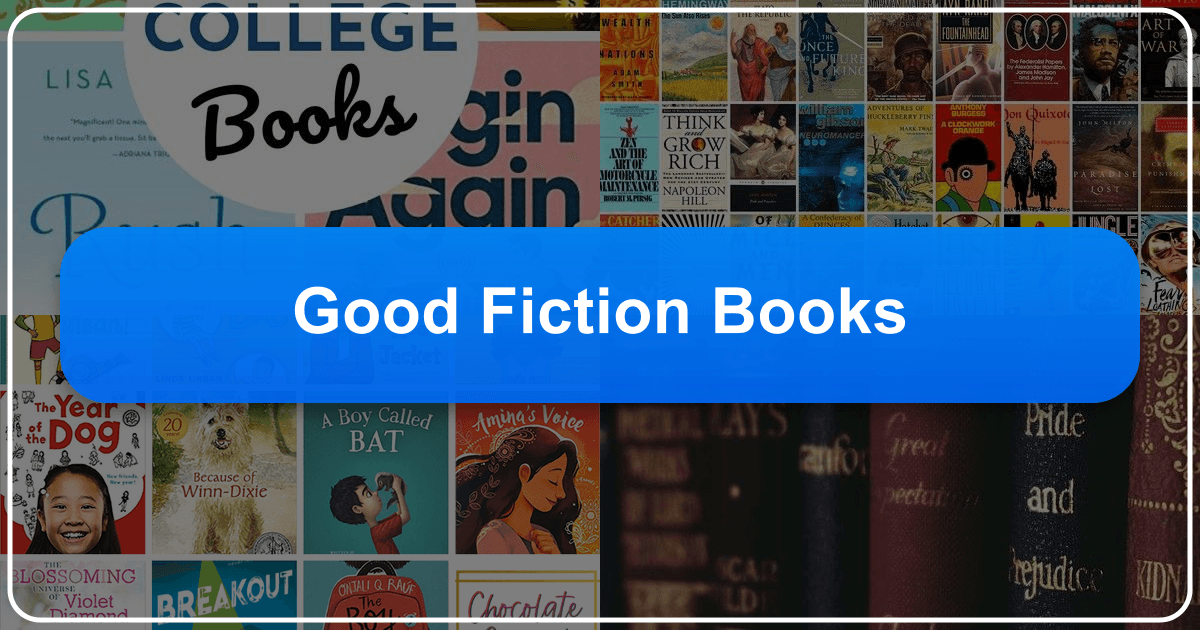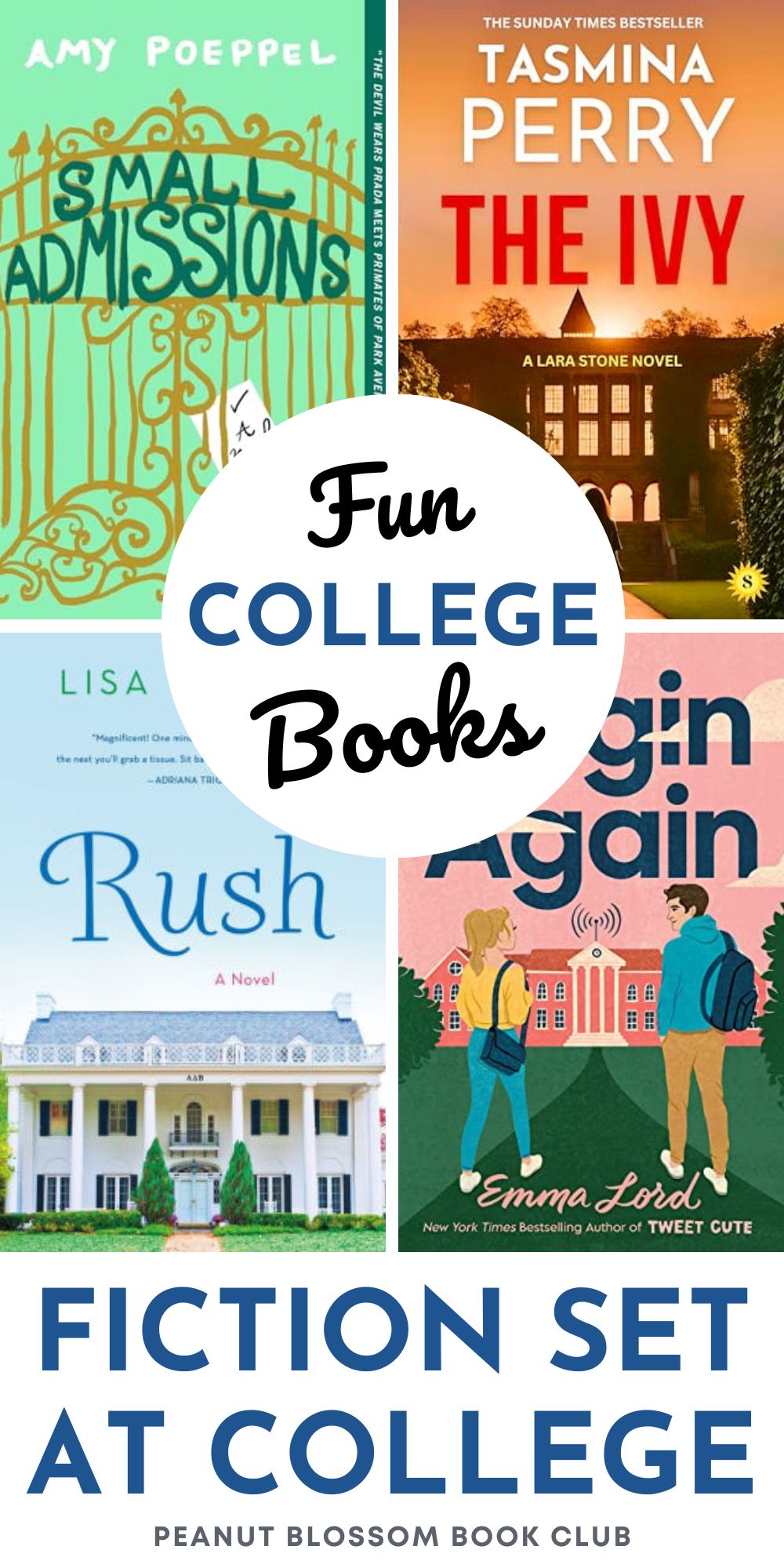Good Fiction Books: A Diverse Selection for Every Reader

The world of fiction offers an endless landscape of stories, characters, and experiences. Whether you’re seeking a thrilling mystery, a heartwarming romance, a thought-provoking science fiction epic, or a captivating historical drama, the right book can transport you to another world, challenge your perspectives, and leave a lasting impact. This exploration delves into the vast realm of good fiction books, examining various genres, authors, and the cultural impact of these literary works. We will explore the elements that make a fiction book “good,” considering aspects like compelling narratives, well-developed characters, insightful themes, and memorable prose. This journey through the world of fiction will guide you towards discovering the perfect reads to enrich your reading experience.
Genres: A World of Literary Exploration

The beauty of fiction lies in its diverse array of genres, each offering a unique reading experience. From the fantastical realms of fantasy to the gritty realism of literary fiction, the possibilities are endless. Exploring different genres broadens one’s literary horizons and introduces new writing styles, narrative techniques, and thematic explorations.
Exploring the Main Genres
-
Science Fiction: This genre often explores futuristic settings, advanced technology, space exploration, and societal implications of scientific advancements. Good science fiction books often delve into philosophical questions about humanity’s future, the nature of consciousness, and the ethical dilemmas posed by technological progress. Examples include The Martian by Andy Weir, Ancillary Justice by Ann Leckie, and Autonomous by Annalee Newitz. These books offer imaginative worlds and thought-provoking scenarios.
-
Fantasy: Fantasy novels often feature magical elements, mythical creatures, and otherworldly settings. They can explore themes of good versus evil, personal growth, and the power of belief. Examples include The Priory of the Orange Tree by Samantha Shannon, Legends & Lattes by Travis Baldree, and The Starless Sea by Erin Morgenstern. These works frequently utilize intricate world-building and captivating storylines.
-
Mystery & Thriller: These genres center around suspenseful plots, intriguing characters, and the unraveling of crimes. Good mysteries often feature clever puzzles, red herrings, and unexpected twists that keep the reader guessing until the very end. Examples include One By One by Ruth Ware, Fire Keeper’s Daughter by Angeline Boulley, and Never Saw Me Coming by Vera Kurian. The tension and suspense are key elements in these captivating narratives.
-
Romance: Romance novels focus on romantic relationships, often exploring themes of love, commitment, and overcoming obstacles. Good romance books create believable and relatable characters whose emotional journeys resonate with the reader. Examples include Red, White & Royal Blue by Casey McQuiston, One Last Stop by Casey McQuiston, and The Dead Romantics by Ashley Poston. These often offer a blend of emotional depth and lighthearted fun.
-
Historical Fiction: This genre blends historical settings and events with fictional narratives. Good historical fiction books meticulously research their settings and time periods, offering insight into past eras while simultaneously telling compelling stories. Examples include The Nightingale by Kristin Hannah, The Book of Night by Holly Black, and The Fifth Season by N.K. Jemisin. These works provide an engaging way to learn history and connect with relatable characters from the past.
-
Literary Fiction: Literary fiction often prioritizes character development, thematic exploration, and complex narratives over plot-driven storytelling. Good literary fiction books challenge the reader’s perspectives and offer profound insights into the human condition. Examples include Olive Kitteridge by Elizabeth Strout, Gilead by Marilynne Robinson, and A Little Life by Hanya Yanagihara. These often showcase intricate prose and nuanced character development.
-
Contemporary Fiction: Contemporary fiction focuses on contemporary issues, settings, and characters. Good contemporary fiction books often resonate with readers due to their relatable themes and characters. Examples include Eleanor Oliphant Is Completely Fine by Gail Honeyman, A Man Called Ove by Fredrik Backman, and Evvie Drake Starts Over by Linda Holmes. These capture the realities of modern life through the lens of captivating narratives.
-
Young Adult (YA) Fiction: YA fiction is written specifically for young adults and explores themes relevant to this age group, such as identity, self-discovery, and relationships. Good YA books often feature strong characters who face complex challenges and find their own paths to growth and understanding. Examples include The Hate U Give by Angie Thomas, Slay by Brittney Morris, and Iron Widow by Xiran Jay Zhao. These frequently deal with topical issues with sensitivity and depth.
-
Middle Grade (MG) Fiction: MG fiction is targeted towards children aged around 8-12, often featuring simpler plots and themes that are more age-appropriate. Good MG books engage young readers while still offering opportunities for imaginative exploration and emotional growth. Examples include Wonder by R.J. Palacio, The House in the Cerulean Sea by T.J. Klune, and Emmy in the Key of Code by Aimee Lucido. These can provide children with a fun and enriching first foray into literacy.
Authors: The Architects of Literary Worlds
The authors behind these good fiction books are the true architects of the worlds we enter when we begin reading. Their creativity, skill, and unique writing styles shape the narratives and characters that resonate with readers. Understanding an author’s background, inspirations, and writing processes can enrich the reading experience.
![]()
Exploring Authorial Styles and Influences
Each author brings a unique voice and perspective to their work. Some authors are known for their lyrical prose, while others excel at crafting suspenseful plots or creating complex and relatable characters. Recognizing these styles enhances appreciation for the artistry involved in creating a compelling narrative. Furthermore, exploring an author’s inspirations, be it historical events, personal experiences, or other literary works, adds a deeper layer of understanding to their creations.

Reading and Learning: The Value of Fiction
Reading fiction offers more than just entertainment; it enhances cognitive abilities, emotional intelligence, and overall well-being. Good fiction books offer educational value, life lessons, and opportunities for personal reflection.
The Benefits of Immersive Reading
Engaging with well-crafted fiction expands vocabulary, improves comprehension, and strengthens critical thinking skills. The process of immersion in a story fosters empathy and enhances emotional understanding by allowing readers to step into the shoes of diverse characters and experience their emotions and challenges. Furthermore, the themes and life lessons embedded within many fictional narratives can provide readers with new perspectives and insights into the human condition, potentially leading to personal growth and self-discovery. The act of reading itself can also be a form of self-care, providing respite from daily stressors and fostering a sense of calm and tranquility.
Libraries: Gateways to Literary Treasures
Libraries serve as vital repositories of literary knowledge and provide access to a wealth of fiction books for readers of all ages and interests. From traditional public libraries to digital archives, these institutions play a crucial role in preserving and promoting literature.
Accessing Literary Resources
Public libraries offer a free and readily accessible resource for borrowing books, while digital libraries expand access to a wider range of titles through online platforms. Many libraries also house rare collections and archives that provide researchers and enthusiasts with access to historical manuscripts and literary artifacts.
Cultural Impact: Fiction’s Influence on Society
Fiction plays a significant role in shaping culture and society, reflecting and influencing social norms, values, and beliefs. Good fiction books often spark conversations, inspire change, and leave a lasting legacy.
The Broader Significance of Literature
Literary works are frequently adapted into films, television shows, and theatrical productions, amplifying their reach and impacting popular culture. Awards such as the Booker Prize, Pulitzer Prize, and Nobel Prize in Literature recognize outstanding achievements in fiction and further solidify the significance of these literary contributions. Furthermore, the communities built around shared reading experiences, such as book clubs and online forums, demonstrate the social and emotional connections fostered by literature.
In conclusion, the world of good fiction books is rich and diverse, offering something for every reader. By exploring the vast landscape of genres, authors, and cultural impact, we can discover the transformative power of storytelling and the countless rewards of immersing ourselves in the world of fiction. The books discussed here represent a mere glimpse into the vast selection available, and the journey of discovery continues with each new book we pick up.